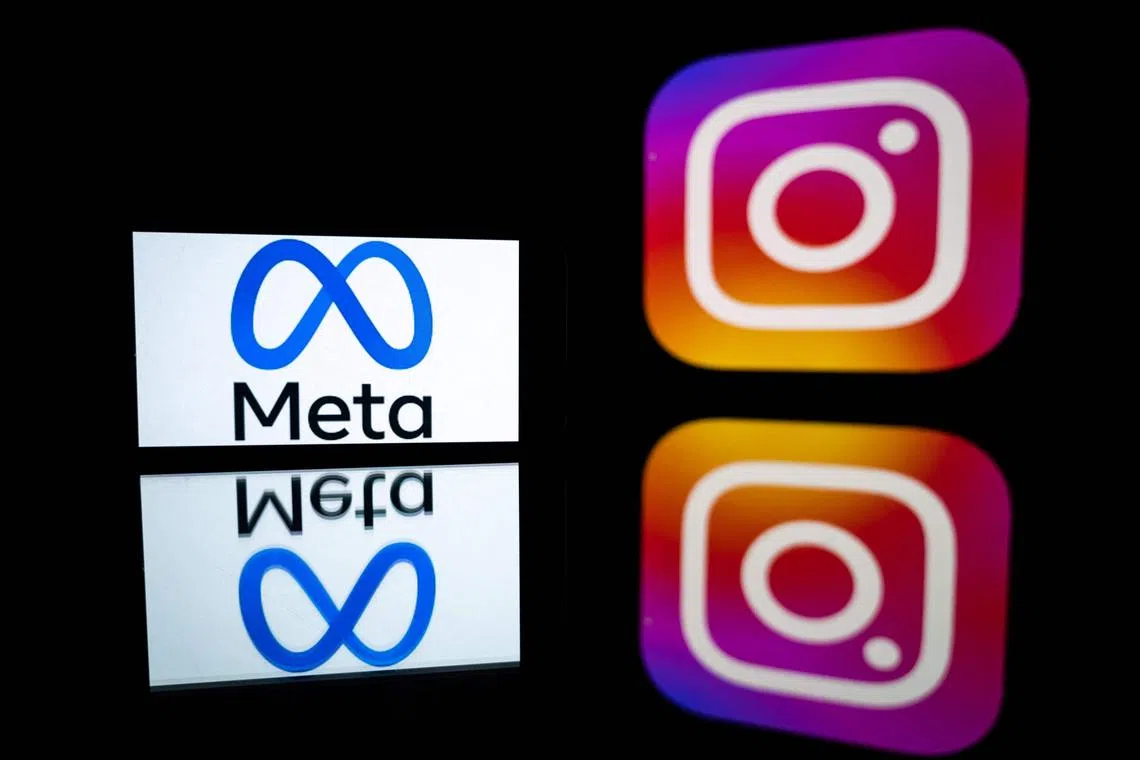Malaysia’s social media licensing plans raise ‘abuse of power’ concerns
Sign up now: Get insights on the biggest stories in Malaysia

The Malaysian government’s move towards a licensing regime for social media and messaging platforms has sparked increasing concern.
PHOTO: AFP
KUALA LUMPUR – Malaysia’s plans to license social media and messaging platforms, subjecting them to greater government oversight, has sparked increasing concern in recent weeks, with the country’s internet regulator summoned before a parliamentary select committee hearing on July 2.
Special Select Committee on Nation Building, Education and Human Resources Development chairman Saifuddin Abdullah told The Straits Times that the parliamentary panel was briefed by top officials from the communications ministry and the Malaysian Communications and Multimedia Commission (MCMC).
However, the committee has asked for a detailed report, breaking down the number of takedown requests annually going back to 2020 and by categories such as scams, pornography and political content “to better understand the landscape and what kind of regulatory powers are needed by the authorities”.
“What is important is not to rush through the process without all stakeholders understanding one another so we can ensure we address the issue of freedoms versus abuse of power,” said Datuk Seri Saifuddin, who was communications and multimedia minister from March 2020 to August 2021.
This comes on the back of an open letter issued on June 27 by 44 organisations and 23 individual activists to Malaysia’s Prime Minister Anwar Ibrahim decrying the licensing proposal as a “blatant abuse of power” and “an attack on a healthy, functioning democracy” that “shrinks public participation”.
The letter follows TikTok’s revelation that the Malaysian government had made the world’s highest number of requests to take down content in the second half of 2023, with such demands surging multiple-fold
The Straits Times reported on June 24
The administration, led by Mr Anwar’s Pakatan Harapan (PH) coalition, had said when first mooting such licences in 2023 that the aim was to facilitate revenue-sharing with local content producers like news media, and to stem what the authorities deem as harmful and illegal content.
But several industry and civil society representatives who attended the briefings with MCMC from April to June told ST that there was little to no mention of digital revenue-sharing.
Instead, proposals discussed included a kill switch to summarily take down content deemed egregious and forcing licensees to allow their content moderation and algorithm processes to be audited, as well as to have an entity domiciled in Malaysia that would be subject to penalties under local law.
These proposals were met with pushback from the platform owners themselves and from civil society.
Plans to allow for pre-emptive action to prevent offences were also described by some experts as “too Minority Report”, a reference to the popular 2002 Tom Cruise movie depicting the arrest of alleged criminals before crimes are committed through the use of precognition.
This comes amid growing claims that the authorities are curbing freedom of speech, with Kuala Lumpur stepping up online censorship, especially on video-sharing app TikTok, the social media platform where the opposition Perikatan Nasional is strongest.
As a whole, 2023 – the first full year that Mr Anwar was in power after taking office in November 2022
Malaysia’s 2024 World Press Freedom rankings also dived to 107th from 73rd previously.
PH has for decades campaigned on a reformist platform
But the joint letter from civil society groups and political outfits said that “rather than fulfilling the reform agenda, the current administration has expanded censorship, and curtailed criticism and healthy discourse based on arbitrary definitions of sensitive content”.
The letter’s signatories included electoral watchdog Bersih, the Centre for Independent Journalism, Amnesty International Malaysia, Parti Sosialis Malaysia, and the Malaysian United Democratic Alliance.
The letter cited plans to expand powers under the “already authoritarian and expansive Communications and Multimedia Act”, drafting an online safety Bill to further empower the government to suppress online content, proposals to expand the Printing Presses and Publications Act to online media, and passing a Cyber Security Bill which “expands the government’s powers to control any computer-related activities”.
Malaysia has seen a spike in harmful content of late, with the MCMC receiving more than 3,400 complaints of hate speech between 2020 and 2023. Also during the same period, RM3.2 billion (S$922 million) was lost to online scams.
Online gambling is also estimated to rob the Treasury of RM2 billion in tax revenue per year.
Responding to growing criticism
A major drive of the licensing regulations is to have platforms beef up content moderation, especially in terms of understanding local languages and contexts.



